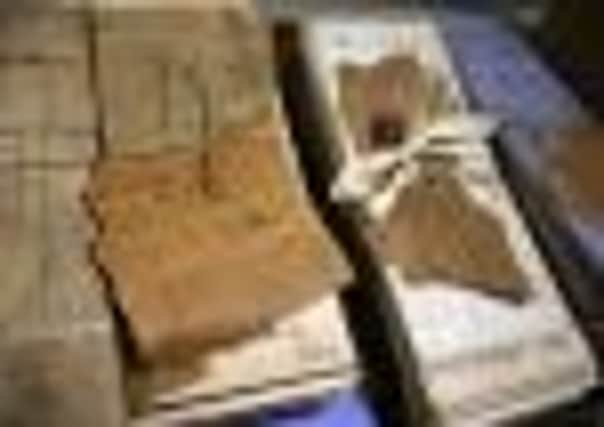Document found after 140 years that began equality revolution


A 140-year-old missive written by a suffragette calling for her to be allowed to study medicine at St Andrews University has been discovered by researchers.
Written by Sophia Jex-Blake in 1873, the seven-page document, which urges the university to allow women to study medicine at the institution, was released yesterday on International Women’s Day.
Advertisement
Hide AdAdvertisement
Hide AdWhile the letter proved unsuccessful at the time, the university said it had helped give impetus to the foundation of the first degree-level certificate for women in the UK, at St Andrews.
Written after an unsuccessful attempt to graduate from Edinburgh University, the letter was signed by ten other women and said that “at least 15 ladies would at once avail themselves of the permission, if given, to matriculate at the University of St Andrews”.
The document was discovered buried in the university archives by part-time history student Lis Smith, who is completing her PhD at St Andrews Institute of Scottish Historical Research.
She said: “We knew that Sophia Jex-Blake and her supporters, in their quest to open up university medical education for women, had written to the Senatus Academicus at St Andrews in an attempt to gain admittance to classes there, but we didn’t know documentary evidence existed.
“While searching the archives for information about the university’s higher certificate for women, I was astounded to come across what must be the very letter Jex-Blake wrote.”
In the letter, the women offered to hire or build suitable premises for a medical school and to arrange for lectures to be delivered in the subjects not already covered in the curriculum at St Andrews.
Although her letter was not successful, it eventually led to the establishment of the Ladies Literate in Arts (LLA) at St Andrews, a distance-learning degree for women.
The qualification, which ran from 1877 until the 1930s, gave women access to university education in the days before they were admitted as students.
Advertisement
Hide AdAdvertisement
Hide AdIt was so popular that it survived long after women were admitted as full students to St Andrews in 1892.
Ms Jex-Blake went on to help establish the London School of Medicine for Women in 1874.
She was accepted by the University of Berne, where she was awarded a medical degree in January 1877.
Eventually, she moved back to Edinburgh and opened her own practice.
A university spokeswoman said: “As we celebrate 600 years of the University of St Andrews it is hard to believe that only for the past 120 years have female students been admitted.
“That is why we are delighted that as we prepare to embark on our seventh century, it is a female academic from within our community who has discovered this reminder of a time when women were literally knocking on the doors of universities, looking for ways to make their mark in the worlds of science and academia.
“Although regrettably the university was not yet able to meet the demands of Sophia and her co-signatories, the letter reignited the flame carried by her forbearers and that eventually resulted in a ground- breaking new programme of study for women.”